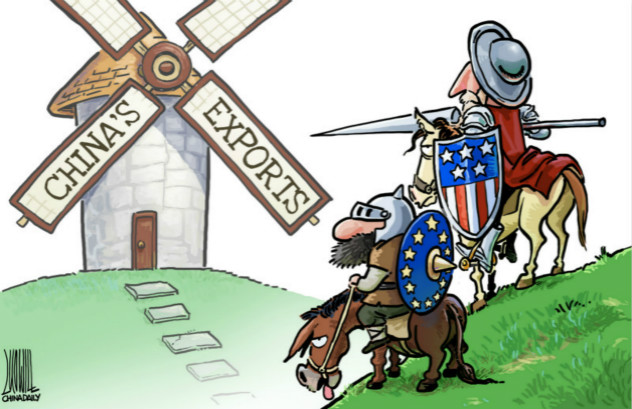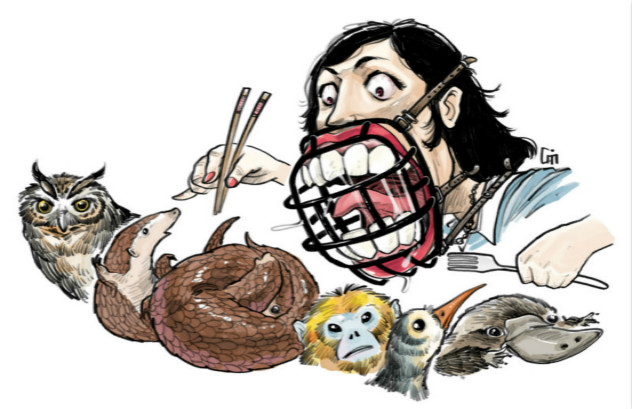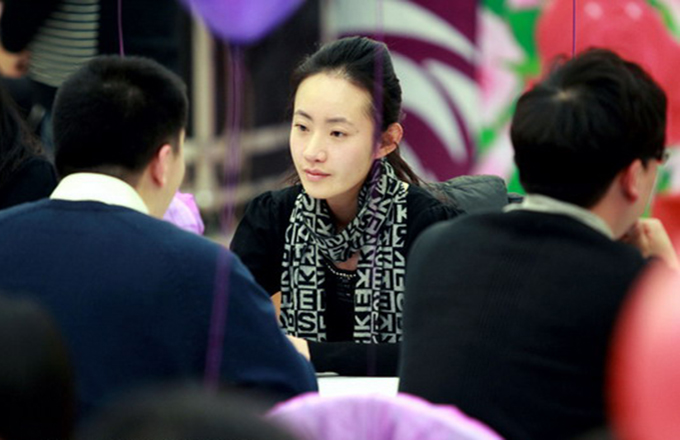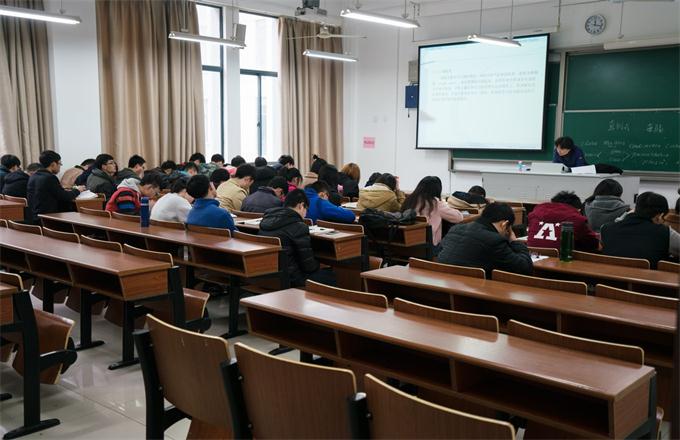French election race already looks messy
|
 |
|
Marine Le Pen, French National Front (FN) political party leader and candidate for the French 2017 presidential election, attends the 2-day FN political rally to launch the presidential campaign in Lyon, France February 5, 2017. [Photo/Agencies] |
With still more than two months to go until the first round of France's presidential election, the contest is already looking messy. A financial scandal, online gossip about one candidate's sexual orientation and accusations of interference in the electoral process by a foreign power have enlivened the race to replace outgoing socialist President Francois Hollande.
Among more than half a dozen hopefuls, attention is focused on three - right-of-center former prime minister Francois Fillon, independent centrist Emmanuel Macron and far right-winger Marine Le Pen.
In the rest of Europe and other Western capitals, mainstream politicians are nervously watching to see if the National Front's Le Pen will win this time around. In 2002, her father Jean-Marie Le Pen made it to a second round runoff against Jacques Chirac, in which left-wing and conservative voters joined forces to deny him victory.
A decade and a half ago, a National Front victory would have been an anomaly. This year - post-Brexit and post-Donald Trump - it could be seen as a further sign of a perceived populist insurgency against out-of-touch ruling liberal Western elites. The outcome is still too close to call. And even Benoit Hamon, a leftist critic of the so-called neo-liberal order, could yet deliver his own upset on behalf of the somewhat discredited Socialist Party.
The contest has been rocked by an investigation into allegations that the conservative frontrunner Fillon paid his wife and children salaries for non-existent jobs earlier in his political career. Although he is hanging on for now, the affair has badly dented his opinion poll ratings.
At the same time, former investment banker Macron has been rising in the polls by focusing on fixing the economy. He has the benefit of being a political outsider, even if he is a former Rothschild banker, which is hardly likely to endear him to anti-elitist insurgents.
The long-married Macron has laughed off rumors that he is a closet homosexual. The gossip figured prominently in Russian media, where he has also been labeled a secret agent for US banking interests. Aides have hit back by claiming the Kremlin is trying to interfere in the electoral process because Moscow would prefer to see the victory of either Le Pen or Fillon, both seen as close to Russian President Vladimir Putin.
Most of the outside world would undoubtedly prefer continuity rather than unsettling change. China, for example, has enjoyed a rewarding relationship with Hollande, including cooperation on infrastructure projects, as he reminded Beijing in a speech to mark the Year of the Rooster.
A Le Pen victory, in particular, would place another big question mark over the future of the European Union following the referendum vote in the United Kingdom to leave the bloc, as at a minimum, the National Front candidate would seek to pull France out of the eurozone. The first round of the election is on April 23 and the second on May 7 if, as is almost certain, no candidate wins a clear majority first time around.
It will not be the first test of European opinion this year. The Netherlands votes in mid-March, with the far-right, anti-immigrant and euroskeptic Geert Wilders topping recent polls. However, the Dutch tradition of coalition government would almost certainly deny him the premiership.
Germany votes in September in a contest that could be influenced by voting trends elsewhere in Europe. So, is Europe headed for what Wilders calls a "patriotic spring" or will centrists hold on to power in the Netherlands and elsewhere?
One lesson that has been taken from Brexit and Trump's victory in the US is that Western voters have rejected decades of globalization, internationalism and free trade and the austerity for which such policies are blamed.
An equally valid lesson is that almost exactly half of Western voters have failed to be swayed by such an analysis and are relatively happy with the status quo, even if they would like to see their politicians be more responsive on social issues.
Nationalism is not an unstoppable tide. In France and elsewhere, there is all to play for.
The writer is a senior media consultant for China Daily UK.
(China Daily 02/18/2017 page5)


















